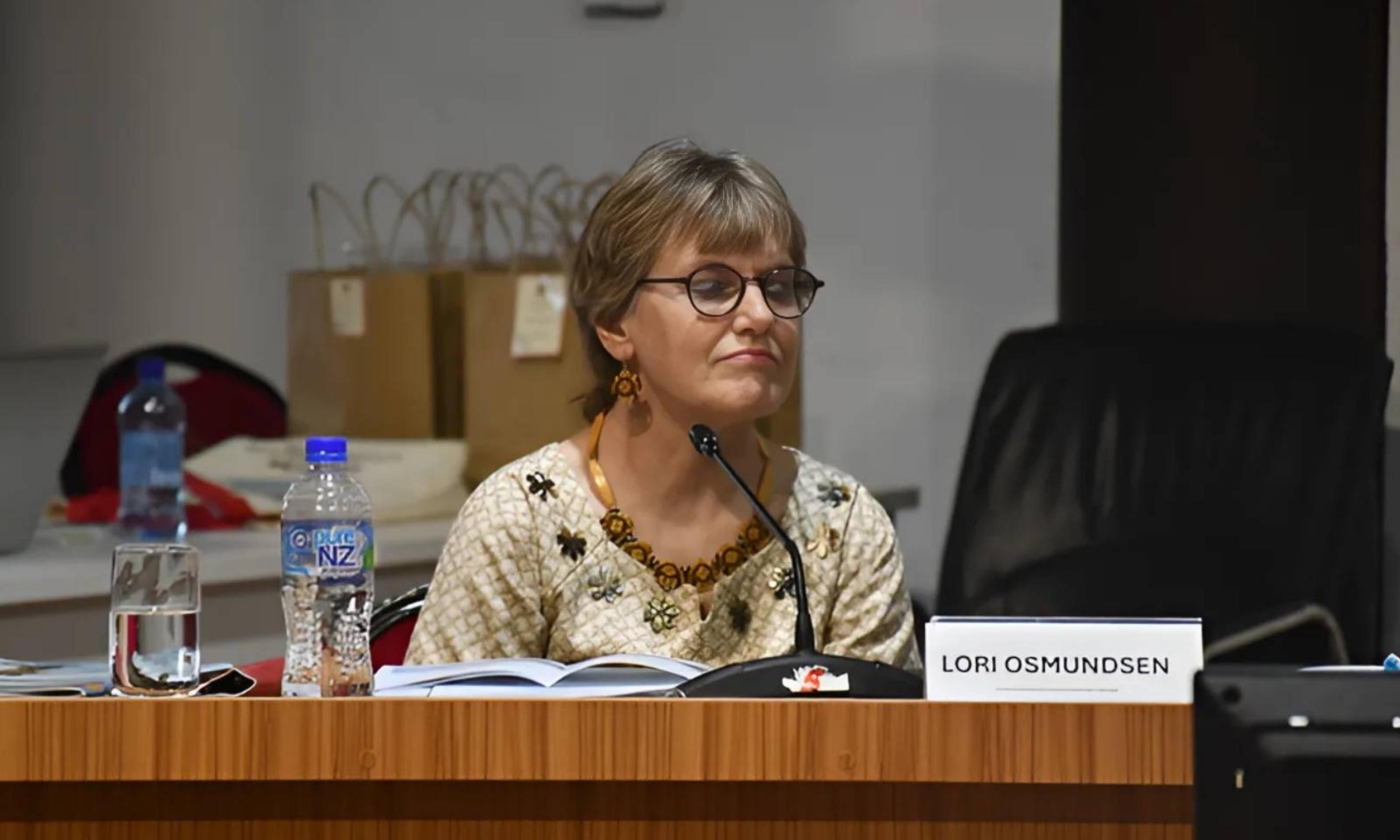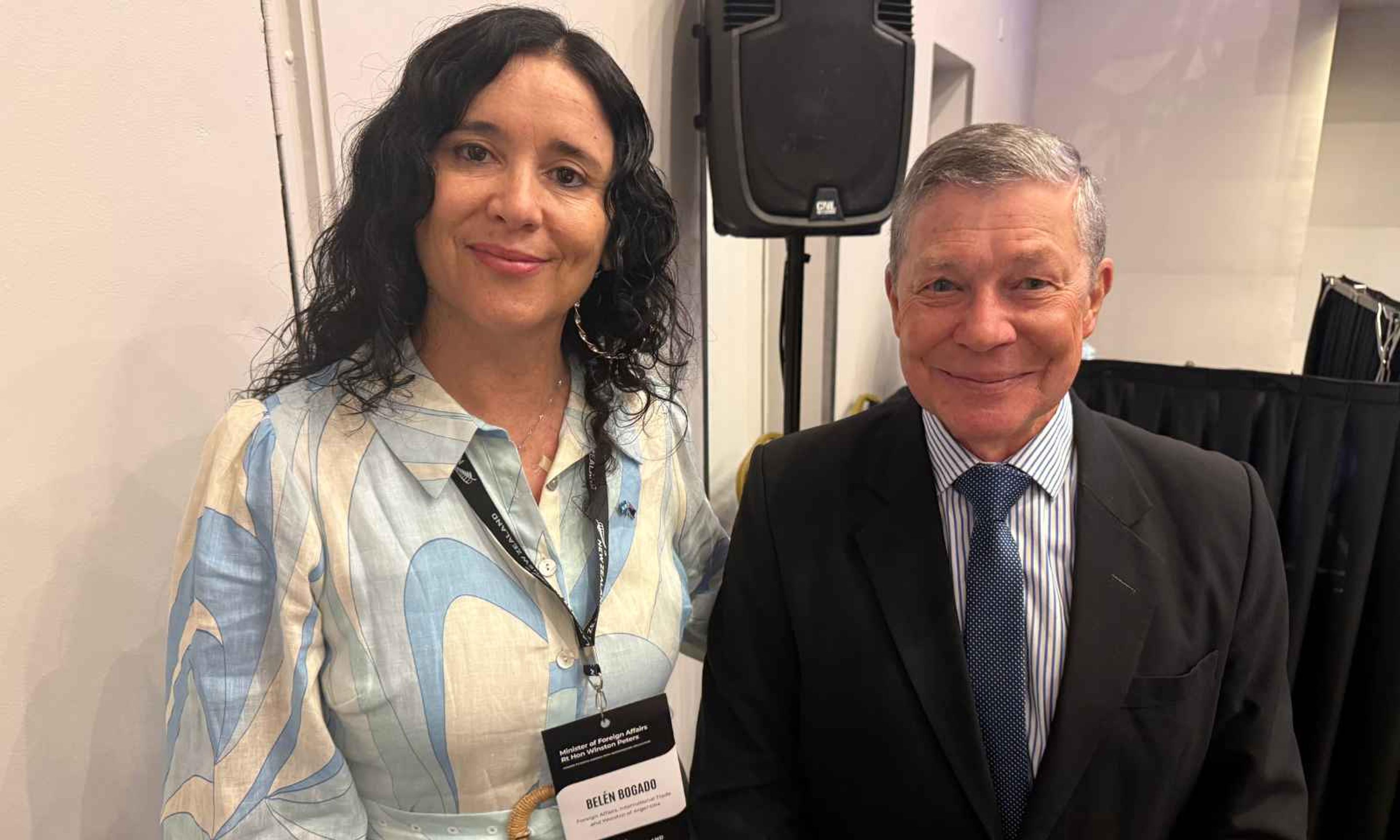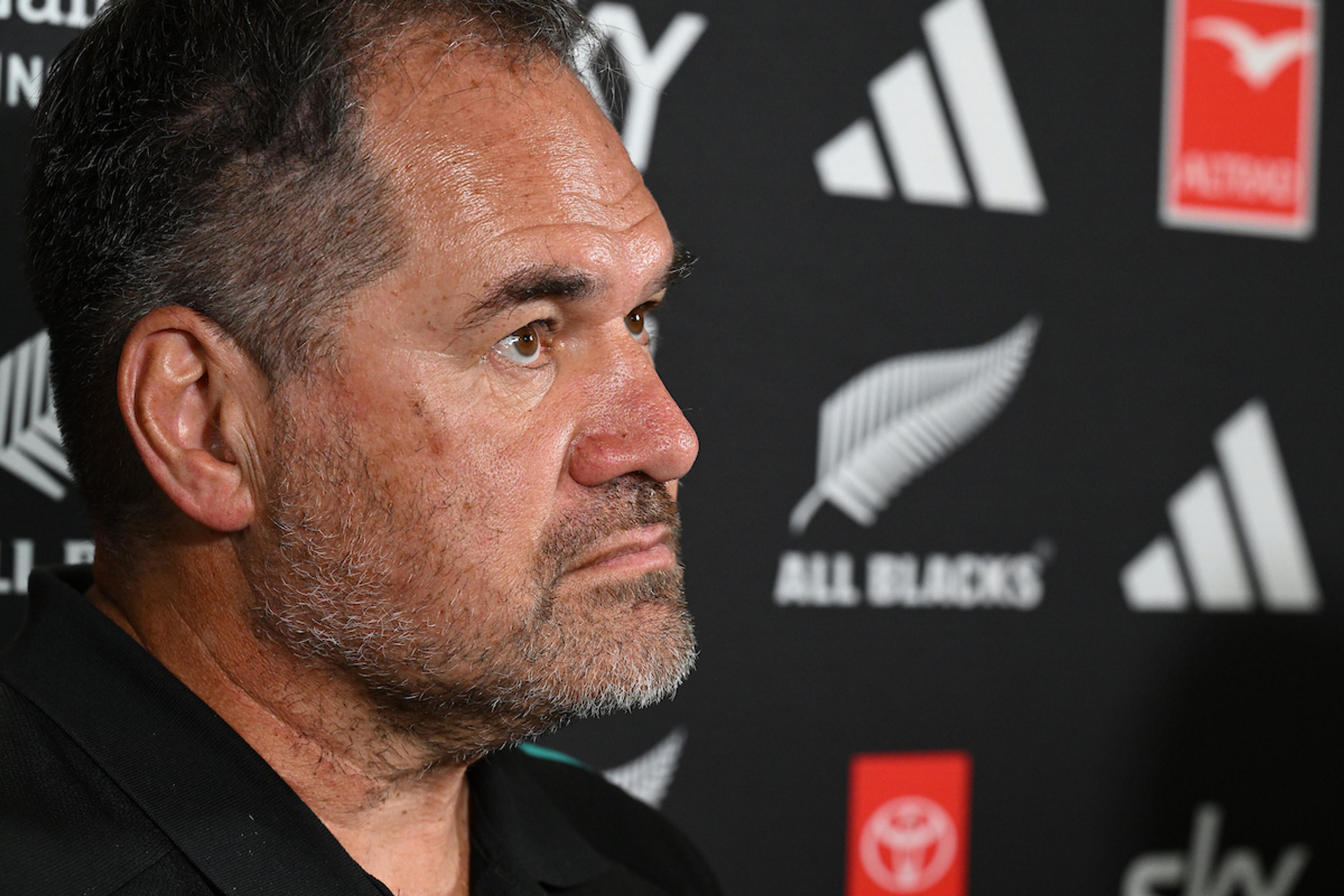

Lori Osmundsen is one of several panellists invited to Tonga’s parliament talanoa on deep sea mining.
Photo/Website/Government of Tonga
Debate on seabed mining in Tonga praised, but legal concerns are raised
Lori Osmundsen says the parliamentary dialogue shows strong public engagement but warns Tonga’s mining contracts contain worrying clauses.


How the Pacific region could benefit from Argentina’s economic rebound, expert

Dave Rennie becomes first All Blacks coach of Pacific heritage

‘Without fear or favour’: Barbara Dreaver chronicles 30 years on the Pacific frontline

Tongan family in Abu Dhabi recount explosions as Middle East conflict escalates

How the Pacific region could benefit from Argentina’s economic rebound, expert

Dave Rennie becomes first All Blacks coach of Pacific heritage

‘Without fear or favour’: Barbara Dreaver chronicles 30 years on the Pacific frontline
A legal expert and environment advocate says Tonga’s public dialogue last Friday brought urgent concerns around deep sea mining into focus.
Lori Osmundsen is one of several panellists invited to Tonga's Parliament talanoa, which drew a packed room of government officials, mining representatives, civil society and local citizens.
Speaking to ‘Alakihihifo Vailala on Pacific Mornings, Osmundsen describes the event as “a shining example of Tongan talanoa”.
She says the presentations were respectful and informative, and she was very happy to see there was adequate time provided for people’s comments and questions at the end.
“It was a very organised event,” Osmundsen says.
“Hats off to the Tongan Government, Speaker Lord Fatafehi Fakafanua, and everyone who made that event possible.
“I was really impressed by the level of interest, curiosity and questions that were posed by members of the public wanting to get more information about deep sea mining in general and Tonga's involvement.
“That is the conversation that needs to be conducted and continued… because this is an important issue, not only for Tonga, but for the Pacific in general.”
Deep sea mining remains a contentious issue in Tonga.
The Government holds a contract with Tonga Offshore Mining Limited (TOML), a subsidiary of the US-based Metals Company (TMC).
Although the debate has been constructive, Osmundsen says several concerns remain.
She says a particular issue is the long-term risks of the current contract, signed by former Prime Minister Pōhiva Tuʻiʻonetoa and TOML in 2021.
At last week’s talanoa, Osmudsen feels the Government speakers and TOML skirted around the specifics of their contractual relationship, which ends in 2057.
“That is quite important and an issue for current members of government, parliamentarians, and the public,” she says.
“It has an automatic carryover and extension provision in it.
“That part was not discussed but is critical, and those terms determine what the Government of Tonga can or cannot do with respect to TOML, whether TOML continues with exploration or continues into exploitation under the International Seabed Authority (ISA) system.”
She adds it is of concern because the contract itself has a number of terms which limit what the Tongan Government cannot do with respect to its own future legislation.
It also makes it extremely difficult for Tonga, if it decides to change course, to get out of the contract.
Watch Lori Osmundsen’s interview below.
Osmundsen says a new confidential draft version of the contract has been floating around, which might encompass different conditions with TMC and their applications for mining from the United States Government.
“There's a lot in the legal contract itself that needs to be considered, and can't be kept under the table there,” she says.
“It has the potential for undermining not only international law that Tonga has obligations under, but Tonga's own domestic law.
“It could potentially impact and undermine Tonga's Seabed Minerals Act, which has been on the books for over 10 years.”
Osmundsen adds the justification deep sea mining metals are critical for green energy is no longer as strong, given changes in battery manufacturing.
She explains less than half of all electric batteries being manufactured use nickel or cobalt, opting for materials like lithium-ion and phosphate.
With the ISA heading for a two-week session in Jamaica this month, Osmundsen believes Tonga still has options in regards to deep sea mining.
She says Tonga could potentially choose a better partner.
“Especially if TOML and its parent company, TMC, continue down the road of seeking licences from the US.
“Tonga doesn't have to join them in that choice, Tonga could choose to stay within the ISA system and the international law of the sea system.”
Tonga could choose to go in a different direction entirely and join its other Pacific Island neighbours that have called for a moratorium, she explains.
“Is there even going to be any commercial viability at all with respect to deep sea mining? Many economic analysts say there won't be and that in another five years, nobody will be talking about deep sea mining anymore because the market will have moved on.
“What it should focus on now in the near term and any other country interested in deep sea mining, is choosing who will be reliable partners.”